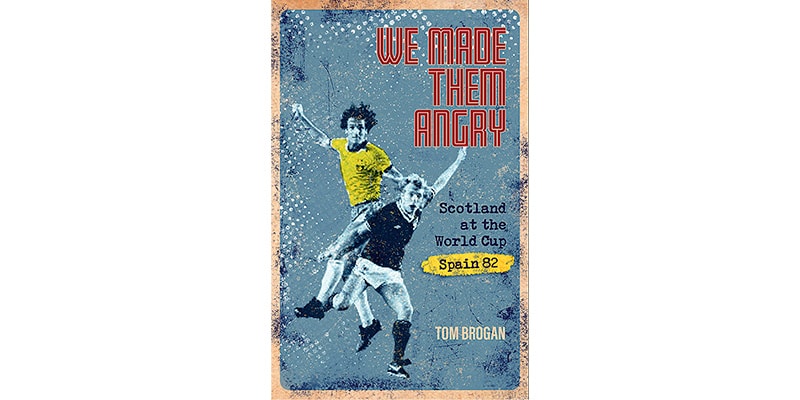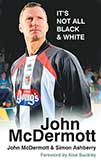
Pitch Publishing, £16.99
Reviewed by David Pollock
From WSC 425, October 2022
Buy the book

Pitch Publishing, £16.99
Reviewed by David Pollock
From WSC 425, October 2022
Buy the book
 by Andrea Pirlo with Alessandro Alciato
by Andrea Pirlo with Alessandro Alciato
BackPage Press, £9.99
Reviewed by Joyce Woolridge
From WSC 329 July 2014
Reading this autobiography of a playmaker nicknamed “Mozart” is like going to the opera: some bloke comes on and sings very loudly in Italian at you for a couple of hours, it’s all very dramatic and enjoyable, but you don’t always know quite what’s going on. In no discernible order, its voluble and intelligent subject, who “has an opinion about everything and I’m not ashamed to express it”, launches into an erratic, extended and idiosyncratic monologue. There are even (mostly much needed) footnotes to explain some of the passing references, although glossing ultras as “the self-styled, most passionate, vocal and committed supporters” was probably unnecessary.
Many of Andrea Pirlo’s lines do sound as if they could have come from, say, Don Giovanni. When his ten years with AC Milan end with the gift of a pen (how many domestic footballers are presented with something to write with when shown the door?) he declares: “Still, I raised a smile because I know how to laugh, long and loud.” (Cue ear-splitting Rabelaisian guffaws.) Various club presidents and managers memorably strut the stage. Marcello Lippi theatrically denounces the Italian dressing room: “Bunch of bastards, bunch of spies”; Antonio Conte hurls water bottles at Juve bellowing: “It’s time we stopped being crap.”
The reader is never in doubt that the text was originally in Italian, making it refreshingly different from the prosaic platitudes of the standard British footballer’s life. True, the highly charged style occasionally strays into Swiss Toni territory: “When you’re in love, it’s time you need. When the feeling’s gone, having an excuse can help.” Again, no British footballer could ever get away with statements such as Pirlo’s lament after Alex Ferguson “unleashes” the ferocious Park Ji-Sung to shadow the Italian midfielder in a Champions League tie: “He’s essentially a man without blemish, but he ruined that purity just for a moment… a fleeting shabbiness came over the legend that night.”
However, usually the purple prose fits the subject matter perfectly. Pirlo’s visceral reaction to losing the 2005 Champions League final in Istanbul will delight not only Liverpool supporters. Not for him the mealy mouthed “gutted”. After this “mass suicide where we all jumped off the Bosphorus Bridge… I no longer felt like a player… But even worse, I no longer felt like a man.” Walking up to take the first penalty in the 2006 World Cup final shootout is “barely 50 metres. But it’s a truly terrible journey, right through the heart of your fear.”
Certain footballers’ preoccupations transcend nationalities. Pirlo’s favourite pursuits, we learn, at some length, are mickey-taking, PlayStation (“after the wheel, the best invention of all time”) and wine, albeit from his father’s vineyards. With a grand flourish he turns down €40 million (£32m) to join Qatar’s Al-Sadd, preferring instead one last bow for his country in the 2014 World Cup. As he says earlier: “Take someone like Antonio Cassano. He says he’s slept with 700 women in his time, but he doesn’t get picked for Italy any more. Deep down, can he really be happy?”
 by John McDermott
& Simon Ashberry
by John McDermott
& Simon Ashberry
The History Press, £9.99
Reviewed by Pete Green
From WSC 326 April 2014
In many ways John McDermott’s book is the archetypal lower-league autobiography. You have contractual wrangles and several relegations shot through with moments of glory, laddish hijinks on pre-season tours of Scandinavia, a touching sense of wonder when the player crosses paths with his contemporaries from the Premier League and transcription from interview tapes with a minimum of editorial effort. Rather than leave for a new club every chapter, though, McDermott spends all of his 21-year, 750-match career with Grimsby Town.
This is what makes his story remarkable. He is, perhaps, the last of his kind – not just at Blundell Park, but anywhere. McDermott was long recognised as one of the best full-backs outside the top flight, having perfected the art – as we Town fans sometimes called it – of defending without tackling. “The best defender on any team is the one with the cleanest pair of shorts,” he is told as a young player, and “that became my forte, staying on my feet rather than sliding in rashly.” It’s Not All Black & White sounds only the faintest notes of wistfulness as the author reflects on transfer approaches from Ipswich, Bradford and Watford – all three of whom go on to reach the Premier League. An England scout arrives early on but McDermott has just been sent on a cross-country run by manager Mick Lyons and has a stinker.
As a schoolboy McDermott travels down from his native Middlesbrough for a trial and never looks back. He speaks of his club and adopted hometown with gentle rather than showy affection (once asked by a national paper why he stayed with Grimsby, he cited the area’s low house prices). Over two decades managers come and go, and with them a variety of methods. Lennie Lawrence takes Town to the bottom of the second tier but McDermott admires his futuristic approach to fitness. More typical is the illustrious Alan Buckley, who throws down the scouts’ opposition report and says: “Right, read it if you want but I’m not bothered if you don’t… it’s all about us.”
McDermott’s situation eventually prompts a sad and telling reflection on footballers’ pay. Wages reflect only what it costs to retain a player – not his ability. When an ageing star is performing superbly these are not the same. Supporters vote McDermott player of the year, but at the age of 36 approaches from elsewhere are unlikely, so the then Grimsby chairman John Fenty (who essentially retains the role to date, in all but name) cuts his weekly pay from £650 to £300. Witness a club legend scrabbling around for odd jobs at the ground to bring in an extra £50 a week, and you see the kind of house Fenty has been running.
For all the talk of McDermott’s loyalty, the most striking trait in evidence here is his dignity. He speaks of Fenty with a surprising lack of bitterness and declines to settle old scores with the senior players who bullied him as an apprentice. In 2009, after retiring, he receives the PFA Merit Award – bestowed previously upon the likes of Jimmy Armfield and Alex Ferguson – and his humility shines on. As with the playing style, so with the man: never lunging in, always staying upright. He’s Grimsby’s greatest ever and his story is compelling.
 Dear WSC
Dear WSC
The article on the FA Cup’s longest tie (Draw to a close, WSC 298) reminded me of what I believe is still officially the longest single match between two English sides – the second leg of a Division Three cup tie between Stockport County and Doncaster Rovers on March 30, 1946. After extra time, the score stood at 2-2 – which was also the score following the first leg. Having checked with the local authorities, the referee let the game carry on until one team scored, the original Golden Goal. After 203 minutes and with darkness setting in, the match was finally brought to an end. The story goes that fans left the match to go home for their tea and returned later to carry on watching. The replay at Doncaster was won by the home team 4-0. This might not be quite as impressive as the longest football match ever, which I believe currently standards at 57 hours. This epic encounter between Leeds Badgers and Warwickshire Wolves in 2010 was played to raise money for charity.
Alan Bredee, Enfield